-
20/20 Seeing the I AM Clearly
 Many churches, conferences, and events are taking advantage of the number of this new year, “20/20” as an optometrist would say it, to remind us to have clear vision (1 Cor. 13:12), to keep our eyes fixed on Jesus (Heb. 12:2), and to focus on the unseen instead of the seen (2 Cor. 4:18). During the month of January, we will join in highlighting that emphasis, especially as it ties in with our spiritual theme for the year.
Many churches, conferences, and events are taking advantage of the number of this new year, “20/20” as an optometrist would say it, to remind us to have clear vision (1 Cor. 13:12), to keep our eyes fixed on Jesus (Heb. 12:2), and to focus on the unseen instead of the seen (2 Cor. 4:18). During the month of January, we will join in highlighting that emphasis, especially as it ties in with our spiritual theme for the year.Iron Rose Sister Ministries’ spiritual theme for 2020 is “Part of the Whole” (Eph. 4:16; 1 Cor. 12:12-27).
Above all, we must keep our eyes fixed on the Whole, the I AM. In order to see Him clearly and maintain our focus on Him, we must come to know Him more deeply... know Him by His name.
We invite you to participate in an interactive small group Bible study, starting in January. The latest book, I already AM, is available through our online store, on Amazon, and also now on Kindle! This study is designed to help us keep our focus in the right place, affirm and strengthen our belief and get to know the I AM in deeper and broader ways through an in-depth study of His name.
In the meantime, stay tuned for “Our Part in Prayer” for our Prayer Month in February. And later in the year, we will explore topics like, “There is no small part,” “Christ is the head,” “Our obedience allows others to do their part,” “Celebrating the part others play,” “You are part of the one-another,” “Finding your part,” “Addressing the sticky parts,” “Thankful to be a part,” and a refocus of vision to keep our eyes fixed on the Whole.
Isn’t that exciting?! Yet, my favorite “part” of what is to come are the conversations and upcoming book celebrating Single Women as a vital part of the Whole. If you would like to join that conversation, we are still gathering research and conducting interviews, so let us know.
Thank you for being a part of the whole that God has brought together to His glory! Thank you for your prayers. Thank you for your support. And thank you for your vital part of these important conversations, Bible studies, and equipping processes.
-
A Legacy of Faith
Written by Deanna Brooks, volunteer with Iron Rose Sister Ministries in Arkansas

“Legacy” is defined as a long-lasting impact of action. We all have a legacy that goes in two directions: influence on us from those who went before us, and our influence on those who come along behind us.
Paul wrote in 2 Timothy 1:5 (ESV), “I am reminded of your sincere faith, a faith that dwelt first in your grandmother Lois and your mother Eunice and now, I am sure, dwells in you as well.”
Not everyone has a parent or grandparent to lead them. We need to be watchful for those we can help.
2 Timothy 2:2 is important in our walk of faith; it tells us to share what we know. “What you have heard from me in the presence of many witnesses entrust to faithful men, who will be able to teach others also.” Our legacy of faith is an ongoing chain where one shares what he learns, then that person shares with someone else… and the message continues to spread.
Think about how you learned to cook. For many of us, we were taught by a mother or grandmother, and when we had children, we taught them (and maybe some of their friends). Now we see our children teaching their children to cook. In our family, my grandchildren enjoy a pound cake recipe that goes back to my grandmother who married in 1913.
Our faith grows as we interact with those who have gone before us. Ask questions about how they came to faith or the special people who influenced them. Listening to others is an important part of inheriting a legacy of faith.
As we pass down that legacy, it is not always necessary to sit down with a Bible to teach. When you teach someone to bake a cake, mention Elijah and the widow of Zarephath in 1 Kings 17. When you turn on the faucet for water, talk about Rebecca drawing water for Abraham’s servant’s camels in Genesis 24. Short, simple comments plant the seed for more in-depth study.
My grandmother was blind from the time I was 10, but she could relate beautiful word pictures. She and Grandad always got to know the children in the neighborhood where they lived, especially the “unchurched,” and when these children would come over for homemade cookies and milk, my grandparents would tell them Bible stories. Some of these children are now preachers, elders, deacons, and Bible class teachers.
Opportunities to share our faith are all around us. The Bible is full of everyday events that tell of God’s Message, and we can use similar times in our lives to connect with that message.
We have been given a beautiful story… One more important than the trivial conversations we often have.
The simple story we need to be able to share has these highlights:
- There is one God who created the world, including man.
- Man sinned, destroying his relationship with God.
- God loved man… Genesis 3 contains the first prophecy of a Redeemer to restore that relationship.
- Over 800 Old Testament prophesies tell of the coming Messiah.
- Jesus the Christ came to earth, lived a sinless life, was crucified, buried, and rose on the 3rd day. He returned to His Father until the time when He will come back to take us home with Him to the Father.
- Faith in Jesus as the Christ, the Son of God is the beginning of our relationship with God.
- Repentance and immersion for the remission of sins follow as demonstrations of that faith.
- Continuing to live a faithful life takes us home to God.
In Deuteronomy 6:7, the Israelites are told, “You shall teach them diligently to your children, and shall talk of them when you sit in your house, and when you walk by the way, and when you lie down, and when you rise.” Sharing our legacy of faith is part of daily life.
Some of Jesus’ last words to His apostles were in Matthew 28:20, “…teaching them to observe all that I have commanded you.”
If the message is in our hearts, it is easy to be aware of times to share the good news. Let’s be sure we do!
-
Adoption
 Written by Beliza Patricia, volunteer with Iron Rose Sister Ministries in Joao Pessoa, Brazil.
Written by Beliza Patricia, volunteer with Iron Rose Sister Ministries in Joao Pessoa, Brazil.In Brazil we have an expression: “But I’m also a son/daughter of God!”
Usually, people will say this after spending more money than they should, or after reacting badly to a situation. In other words, they will use this expression in an indirect way, when what’s really being said is: “Because I am a child of God, I have certain rights…”
The fact is that not everybody is a son/daughter of God, even though we are all His creation. And indeed, His children receive privileges, but none of it is because of our own merits. So how do I know if I am a child of God or not?
“But to all who did receive him, who believed in his name, he gave the right to become children of God, who were born, not of blood nor of the will of the flesh nor of the will of man, but of God.”(John 1:12-13)
What makes us children of God is the belief in Jesus Christ. It is receiving Him as Lord and Savior of our lives. And the truth is that God was the one who made all of this possible.
While some people will use the expression “I am a son/daughter of God” as a fundamental and inalienable right, the Bible tells us something different.
“among whom we all once lived in the passions of our flesh, carrying out the desires of the body and the mind, and were by nature children of wrath, like the rest of mankind.”(Eph. 2:3)
Sin pushes us away from God. We were deserving of God’s wrath because we disobeyed. We didn’t obey His will. But God’s love is so immeasurable that through Jesus, He saved us! And there’s more! There was nothing we could do to obtain that through our own efforts.
Through Jesus, He redeemed us: He resurrected us and promised us eternal life while we were dead in our transgressions. He justified us: He declared we were righteous even though we didn’t deserve it. He adopted us: He received legally as His children, part of His family. Adoption is a blessing decreed by God.
The adopted ones receive guidance, instruction, protection, correction, and safeguarding from God. And one last gift that is so important: He gives us eternal life.
Try to comprehend how big God’s love is for us: He could give us eternal life through Jesus and still reserve for us the role of being just servants. That would already demonstrate mercy from Him. But He does more than that!
We cannot forget that our adoption into God’s family happens only by His grace, not by our works. But what we receive freely had a high cost for God.
“But when the fullness of time had come, God sent forth his Son, born of woman, born under the law, to redeem those who were under the law, so that we might receive adoption as sons.”(Gal. 4:4-5)
Redemption is a rescue that means obtaining or freeing, upon the payment of a price. Our adoption was very costly to God. It cost His Son’s life. Yes, Jesus had rights, but He never sinned (1 Pet. 1:22). Through Him all things were created (Col. 1:16). Without Him nothing would have been made (John 1:3). And yet, because He loved us, He emptied Himself and became like us to pay the price for our sins (Phil. 2:6-8). We can never forget that free adoption for us was costly to God.
I said that the adoption (that is undeserved) gives us privileges. Some of the privileges for those adopted by God are:
- Having a Father/son or Father/daughter relationship with God. (1 John 3:1)
- Knowing God takes care of our necessities. (Matt. 6:32)
- Knowing God blesses us (Matt. 7:11)
- Being guided by the Holy Spirit (Rom. 8:14)
- Being disciplined by God (yes, discipline is a privilege!) (Heb. 12:6)
And returning to the famous phrase: “But I am also a son/daughter of God!”, those who claim to be sons and daughters must remember that the adoption as His children comes with a transformation guided by the Holy Spirit. Our actions, our thoughts, desires, words, everything is modified when we become children of God. Our behavior must be like our Heavenly Father’s (Eph. 5:1).
“For in Christ Jesus you are all sons of God, through faith.”(Gal. 3:26)
-
All the Women
Written by Kat Bittner, volunteer with Iron Rose Sister Ministries in Colorado
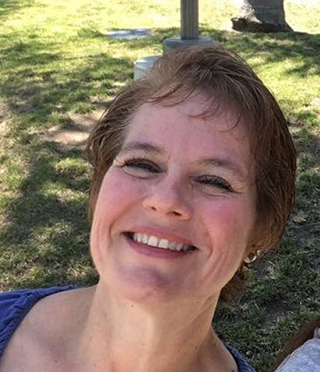
“When we denigrate a woman, we are in fact diminishing part of the image of God.”–Christine Caine, Unashamed
My husband has often remarked that, historically, women’s suffering lies in the hearts of men. He believes the lack of regard for women is rooted in men who did not and do not “see” women as God intended. And if men had regarded women as Jesus did in His relationships with them, no woman would have ever felt slighted.
If we know anything from Jesus’ relationships, it is that they were intentional. They had a clear purpose and were focused even from the moment His first relationship was contrived (1 John 4:14, Matt. 1: 21-23). Jesus’ relationship with the twelve apostles, with those He healed and to whom He ministered were all purpose-driven relationships. And that intentionality was also poured into the many women in Jesus’ circle.
The first woman in Jesus’ circle was His mother, Mary. She was a model of godliness, a woman who “found favor with God” (Luke 1:30, NLT), and she was an intimate witness to Jesus’ divine nature and purpose (Luke 1:31-35). Mary was a key player in the first public miracle of Jesus (John 2:1-11). And as the mother of the most Holy, she had what was probably a very daunting task. To care for and raise the Savior of the world, the One by whom she herself would be delivered had to be most intimidating. Yet she was honored and cherished by Jesus, exemplified by His declaration to ensure that she was properly cared for after He died (John 19:26-27).
Also counted among Jesus’ personal circle of women friends were Martha and Mary. Scripture tells us that “Jesus loved Martha and her sister” (John 11:5, NKJV) and that these women passionately served and learned from Jesus (John 12:1-3, 7; Luke 10:38-42). Through these women Jesus taught that fulfilling our spiritual responsibilities should be of utmost importance. Women, too, are called to learn from Jesus, apply the Word of God and be disciples. Additionally, Jesus’ love for them and their brother, Lazarus, was the impetus for raising Lazarus from the dead thereby witnessing God’s glory to a multitude. That was the kind of intentional relationship Jesus had with Mary and Martha. Jesus valued it. He valued them.
And then there’s Mary Magdalene, a woman who is almost always mentioned first among the female disciples and leaders (Mark 16:9; Luke 8:2; Matt. 27:56, 61). After being “healed of evil spirits and deformities… out of whom had come seven demons” (Luke 8:2, NKJV), this Mary dedicated her life to Jesus and was with Him when He died (Luke 8:1-3; John 19:25). Perhaps the most intentional thing to happen to Mary Magdalene was to be the first witness of Jesus’ resurrection (John 20:11-18). Women were not known for being credible witnesses in that age, so it was a purposeful and focused thing to have Mary first testify that Jesus had risen from the tomb.
Jesus also surrounded himself with many other women who played important roles in His ministry (Mark 15:40-41).Luke tells us about several women who helped support Jesus and the apostles “out of their own means” (Luke 8:3, NIV). These included Joanna, who managed Herod’s household, Susanna and many others. They fed Jesus’s ministry, literally and financially. Also mentioned are the “many women” who “had followed Jesus from Galilee to care for his needs” (Matt. 27:55-56). After His ascension, many women were among those who were carrying out the Great Commission in varied roles (Rom. 16:1-15; Acts 1:12-14; Acts 18; Acts 21). Phoebe the deaconess, the daughters of Philip who were prophets and Junia who was imprisoned and “outstanding among the apostles” (Rom. 16:7) were women who labored to expand the Kingdom.
Jesus bestowed a special honor on women. His regard for them, though revolutionary for the times, highlighted the way God intended for women to be valued. God said, “Let us make human beings in our image, to be like us….in the image of God He created them, male and female He created them” (Gen. 1:26-27, NLT).
Psalm 46:5 – God is within her…..
Because men and women were made in the image of God, God cannot be fully reflected without a woman. When we minimize women, relationally or otherwise, we minimize the image of our Lord and Savior.
Don’t you see the intention behind human creation? There is a clear, divine purpose for man and woman. We are to be image bearers and a living witness of God. If we wrap our heads around that, we cannot help but acknowledge our worth and value. Jesus and all the women were intentional relationships that embody the essence of God. That just blows my mind!
-
And the Curtain was Torn!
Written by Deanna Brooks, volunteer with Iron Rose Sister Ministries in Arkansas

When we read through Scriptures, we see God has pursued a relationship with man from the beginning. He walked with Adam and Eve; He called Abraham to follow Him; Moses was chosen by God to lead the Hebrews from Egypt and become His people in the Land of Promise.
The Old Covenant was given through Moses; the New Covenant came through Jesus Christ (John 1:17).
Under the Old Covenantthey had:
- A set of laws written in stone where God outlines acceptable behavior and sinful behavior.
- An earthly high priest through the line of Aaron, who had to offer a sacrifice for his own sin first (Heb. 5:1-4) … and these sacrifices were repeated over and over with communication through priests and prophets.
- Rituals of purity and cleansing; sacrifices were offered for illness, childbirth, and sin. There were times of required fasting. The Sabbath was to be holy and a day of rest. Men went to Jerusalem three times a year.
- ONLY the High Priest was allowed in the Most Holy Place where the Ark of the Covenant was and where God came down to receive the sacrifice.
For centuries a curtain hid the area where the high priest entered once a year to make sacrifices for sin (Lev. 16), where God came down and hovered above the mercy seat to receive the sacrifice. The people never entered into this holy area.
But one Passover when the priests were offering the sacrifice of the lambs for the sins of the people, the thick, heavy curtain of the temple was torn from top to bottom. It was torn in two because another lamb was being sacrificed not too far away on the hill of Mount Calvary, and that lamb was Jesus—the perfect lamb—the perfect sacrifice which was being offered for all men for all time. Because of this sacrifice, Jehovah God proclaimed Jesus both Lord and Christ (Acts 2:36).
And behold, the curtain of the temple was torn in two, from top to bottom. And the earth shook, and the rocks were split. (Matt. 27:51 ESV)
This 30-foot-tall curtain was ripped from top to bottom, as though the hands of God reached down and tore it open, inviting you and me to have direct access to Him. Because the curtain was torn, we have direct access to the Throne of Heaven!
Because of that perfect sacrifice, our purification is through the blood of Jesus Christ which cleanses us as we are baptized into Him. Jesus' sacrifice was one time for all men. Our baptism is a one-time event that washes us clean. Our life of faithfulness and confession keeps us clean.
Under the New Covenant we have:
- Laws written on the heart (Heb. 10:16).
- A sinless Heavenly Priest (Heb. 9:24, 28, 10:12) who offered one sacrifice.
- The opportunity to meet with other disciples on the first day of the week to share the Lord’s Supper and worship our Heavenly Father.
- Adoption by God (Gal. 4:5). When we become followers of Jesus, the Hebrew writer says, “For he who sanctifies and those who are sanctified all have one source. That is why he is not ashamed to call them brothers” (Heb. 2:11).
- Jesus Christ, our Messiah as our sacrifice … not a bull or goat, as we read in Hebrews 10:10-12.
…we have been sanctified through the offering of the body of Jesus Christ once for all. And every priest stands daily at his service, offering repeatedly the same sacrifices, which can never take away sins. But when Christ had offered for all time a single sacrifice for sins, he sat down at the right hand of God.
In verses 19-23, Hebrews 10 goes on to say that because Jesus is our sacrifice, one sacrifice for all of us, we have access to our Heavenly Father through Him.
Therefore, brothers, since we have confidence to enter the holy places by the blood of Jesus, by the new and living way that he opened for us through the curtain, that is, through his flesh, and since we have a great priest over the house of God, let us draw near with a true heart in full assurance of faith, with our hearts sprinkled clean from an evil conscience and our bodies washed with pure water. Let us hold fast the confession of our hope without wavering, for he who promised is faithful.
In 1742, Charles Wesley wrote a hymn that contains these words: “With confidence I now draw nigh and ‘Father, Abba Father’ cry!” Those who lived before us under the Old Covenant could not have sung those words.
So, the important question for us is: Do we take advantage of our access to the Throne of Heaven as children and heirs of the Heavenly King?
-
Best Laid Plans
Written by Tony Brizendine, husband of Brenda and volunteer with Iron Rose Sister Ministries
I can remember the excitement I felt as if it were yesterday. Brenda and I were picking out the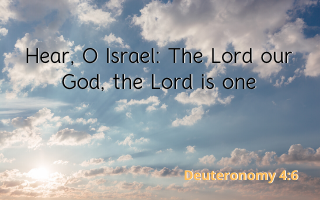 paint colors, cabinets, carpet, and light fixtures for our new home. This is something we had prayed about for years and our dream was finally coming true. We received a phone call from our realtor while we were celebrating my birthday. He congratulated us on securing the property to build our new home on. I thought for sure this was God’s hand blessing us. We had already sold our previous home and were living in the basement of my parent’s house while waiting on our new home to be constructed. We also were pregnant with our daughter and were hoping the new home would be finished before she was born.
paint colors, cabinets, carpet, and light fixtures for our new home. This is something we had prayed about for years and our dream was finally coming true. We received a phone call from our realtor while we were celebrating my birthday. He congratulated us on securing the property to build our new home on. I thought for sure this was God’s hand blessing us. We had already sold our previous home and were living in the basement of my parent’s house while waiting on our new home to be constructed. We also were pregnant with our daughter and were hoping the new home would be finished before she was born.
The months that followed seemed to contradict all of our excitement. The building of our home was delayed for several months due to a shortage of workers. By the time there were workers available, I received news that I was being laid off from my job. We ultimately had to pull out of building the house a few weeks before Brenda’s due date. I was crushed. No job, no house and a baby on the way. I asked myself over and over, “Why would a good God allow this to happen to us?” I felt angry and abandoned by God.
A few days after our daughter was born, I received a call from a former boss of mine. He invited me to apply for an open job with his new company. Within a week after his call and interviewing, I was employed again. My parents and younger sister helped us with our newborn daughter while we were living with them, which was a huge blessing for us. Two months later, our realtor called us and had a great home available for us to purchase that suited our needs perfectly. We were able to move into our house the weekend of my birthday, exactly 1 year after we had secured the property for the home we wanted to build.
After having some time to reflect, I realized that I was not putting God first. In that season, I had become selfish and shortsighted. I didn’t see God as my provider. I saw myself and my job as my provider instead of Him. He is the Great “I AM” and as Deuteronomy 6:4 says, “The Lord our God, the Lord is one.” God is not interested in just granting the desires of our heart, He wants our whole heart. While we see the surface level things, He can see from a much higher level than we can.
While I was very grateful to God for restoring my employment and helping us through that season, I felt as though our dream was lost. Yet three years later, God provided a home that was not far from where we originally wanted to build, and was constructed at the same time we lost our “dream house”. The selling owners took very good care of the house, which was far beyond our expectations, and left it in pristine condition. It was as if God had these people taking care of it for us while He waited for the right time to deliver it.
God had seen what we needed on the surface level, but He wanted us to learn to see Him first, The One, The Whole. Thanks for letting me share this reminder to keep our eyes fixed on the I AM. -
Betrayal in Relationships: Jesus and Judas vs. Peter
Written by Marbella Parra, volunteer with Iron Rose Sister Ministries in Honduras

God created us as social beings with a need to relate to other people. We mostly enjoy sharing special moments of our lives with others. In the journey of our life, we meet people—and some of them stay with us. We develop friendships, and we support each other in happy moments as well as in difficult times. We call these people friends.
Proverbs 17:17 says, “A friend loves at all times, and a brother is born for a time of adversity” (NIV). On this path of relationships, situations can arise in which we are disloyal to that person who has trusted us. Yes, we are talking about betrayal—a pretty strong word, but real. I don’t think that anyone would like to be called traitorous, but the truth is that at some point in our lives we have failed in our relationships, and others have also failed us.
The Bible recounts two quite shocking cases of betrayal that cause us to reflect on our own relationships; they are Judas and Peter, two disciples who had the joy of sharing a close relationship with Jesus. They saw His miracles, walked with Him, ate at the same table, learned from His teachings, and accompanied Him in His ministry. They had a beautiful privilege—to be friends of Jesus. Similarly, we have people who share with us, know us, eat with us, go out with us, and laugh and cry with us. But relationships are always put to the test, and Jesus' relationships with Peter and Judas were no exception.
Let's first talk about Judas. In the gospels, we find few details about Judas, but it is known that he was a follower of Jesus and supported His ministry. It is also known that he had a soft spot for money; so much so that his greed led him to betray Jesus for 30 pieces of silver. Judas faced a very tempting opportunity that made him fall and lose the trust and friendship that Jesus had with him. Tragically, after falling and thinking about what he had done, he did not know how to handle the situation and ended his own life.
Then there is Peter, about whom we have more details in the Bible. He had an energetic and impulsive personality, and something that stands out about him is that he recognized Jesus as the Son of God, always ready to serve and work alongside Him. Peter was strongly involved in Jesus' ministry, but, like Judas, he underwent a test of faithfulness. Although in many moments he expressed his faith and love for Jesus, in a difficult moment when he had to express his beliefs and show loyalty to his Lord, he did not measure up and betrayed Him.
Likewise, our relationships go through moments of testing, and often we betray some. Perhaps we speak ill of our friends to others, turn our backs on them in difficult times, envy their achievements, and damage our long-standing relationships in many other ways. At other times, we are betrayed by others. But this is not the end of the story. As humans, we will fail, but the final test is how we behave after betraying others, including God, and also how we behave when others betray us.
We have 3 examples from which we can learn. The first two show us the importance of repentance when we are the ones who betray someone. Judas teaches us that we can take the “easy path”; he believed that he would solve everything by ending his life, but it would have been better to repent and genuinely change. We can take the easy road, pulling away from that special person, not talking to them anymore, and if we have failed, showing them an attitude of pride, and withdrawing without fighting for that friendship. Peter on the other hand, after making the big mistake of denying Jesus, had great pain in his heart and repented. After his betrayal, he changed his life, asked for forgiveness, and continued to serve his Lord faithfully until his death. Asking for forgiveness is the difficult path; many times it is hard for us to admit that we have failed and reach out to that person, perhaps out of shame, or perhaps out of pride, but in the end, fixing things with that special person that we have offended can redeem an important relationship in our lives.
And last but not least, we have Jesus, an example to meditate on when we are the objects of betrayal. He was a faithful friend who was always willing to forgive. Despite the failures of Judas and Peter, I am sure that He was willing to receive them again and give them another chance. Peter took advantage of this blessing and further strengthened his ties with Jesus; unfortunately, Judas did not. In Jesus, we have a great example of forgiveness when someone special betrays us. Although it hurts to be betrayed and produces enormous sadness, it is worth forgiving and rescuing those relationships that God has placed in our path.
Let us learn from the example of our Lord Jesus who was willing to forgive betrayal, and from Peter who was willing to admit his mistake and change completely for the good of his relationship with our Lord.
I want to invite you today to value all those special relationships that you have or have had. Is there any relationship that you can recover today through repentance or forgiveness?
-
Betrayal… God Can Resurrect Relationships
Written by Corina Diaz, volunteer with Iron Rose Sister Ministries in Argentina

It has happened to all of us: we have high expectations about a relationship with something or someone, and then we realize that the reality is completely different than what we expected.
Even Jesus, when realizing that He would be betrayed, kept in His heart the desire to pass that cup. “After he had said this, Jesus was troubled in spirit and testified, ‘Very truly I tell you, one of you is going to betray me’”(John 13:21 NIV).
Jesus knew that it was not Judas himself who initiated the betrayal, but He recognized that sinful action stems from an external influence. “Then Satan entered Judas, called Iscariot, one of the Twelve”(Luke 22:3). “As soon as Judas took the bread, Satan entered into him”(John 13:27a). It is very important to recognize that Satan is actively working to bring about betrayal in our relationships.
Dealing with these situations on a personal level can cause us anguish, and will affect how we deal with the reality of what has happened.
Jesus' outline was simple—only three steps:
- Accept the situation.
- Pray to the Father to process the feelings.
- Keep the heart open to give love.
It seems quite simple—and I assure you that it is not—but I also assure you that lowering expectations and accepting what comes, while cultivating a pure heart will make the path more bearable!
-
Breaking the Generational Cycle
Written by Aileen Bonilla, volunteer with Iron Rose Sister Ministries in Ecuador

Breaking the generational cycle of disobedience is a very big responsibility placed on our shoulders by God. However, He promises to be by our side at all times, and not only this, He also promises to lighten our load because His yoke is easy (Matt. 11:28-30) and His grace is sufficient (2 Cor. 12:9-10).
With this in mind, let me share some thoughts about the generational cycle between Saul and his son Jonathan. The scriptures tell us that God chose Saul to be the first king of Israel. King Saul had serious character flaws, so why would God anoint such a man to rule His people? The answer may not be totally clear to us, but it is evident that God allowed this situation so that His people would realize that no human king could compare to Him, and that absolutely no one could be as good as God Himself.
Saul was an arrogant man. However, the position he had been given was not what made him prideful; it simply exposed what was already in his heart (Prov. 23:7). Being the first king of Israel certainly must have reinforced his pride. This king did not trust God: he made foolish and unwise oaths (1 Sam. 14:24), and he did not comply with God's commandments. This leads us to conclude that he did not fear God. He did not value even the life of his own son (1 Sam. 14:44); however, in spite of this, Jonathan decides in his heart not to be like his father.
The Bible describes Jonathan as a brave, strong man, and a good warrior, but it also describes him as a man of love (1 Sam. 18:1), a loyal friend, and a good son. Above all, he was a young man who feared God and lived to assure that nothing or no one would hinder Jehovah's purposes.
Jonathan knew that the Spirit of God was no longer in his father. Recognizing this truth was very critical, because everything Saul did was subject to his human nature, rather than out of a desire to please God. As a result, it was impossible to trust him. Jonathan decided not to be like his father. To make such a crucial decision, his bond with the Lord must have been very close since God is the only one who can help us break these generational chains.
Any one of us can choose not to follow the same destructive path as our parents if we grew up in a non-Christian family. Asking God to help us break those unfaithful generational cycles will bring light not only to our current family, but will also build future generations of believers, and God will pour out His blessings on all of them. It all begins with creating a close relationship with God. Then He will show us what sinful attitudes we have inherited from our unbelieving ancestors which will enable us to break the generational cycle and be transformed into faithful followers.
This is also a way of fulfilling the command of Jesus when He says, “If anyone comes to me and does not hate father and mother, wife and children, brothers and sisters—yes, even their own life—such a person cannot be my disciple”(Luke 14:26 NIV). Jonathan was not willing to sacrifice obedience to Jehovah for the unholy whims of his father. Many times, without realizing it, we carry bitterness in our hearts, because our parents were also bitter. We downplay the importance of church involvement because we do not believe that God requires this, and as if that were not enough, at least in Latin America, faithfully congregating every Sunday with the Lord’s church is no longer a priority.
Jonathan was clear about his purpose on this earth—to give glory to God at all times—even to the point of offering his own life so that his best friend David could live, assuring that the messianic lineage would continue its course until it reached Jesus. In the same way, we must fervently ask that God show His purpose for us so that we can live giving Glory to Him, and above all, accept His grace every day to break family yokes that are not healthy. Building a spiritual life that transcends for many generations depends on our effort and courage, but above all, it depends on the openness and sensitivity of our hearts toward the voice of God.Saul closed his heart to Jehovah; therefore, the Spirit of God left him.
Today, I first encourage you to pray and ask God to show you His purpose for your life. Second, ask Him to help you live for this purpose and, in this way, He will break every chain that ties you to the past.
-
Building Relationships with our Children and Grandchildren
Written by Brenda Davis, volunteer with Iron Rose Sister Ministries in Arkansas
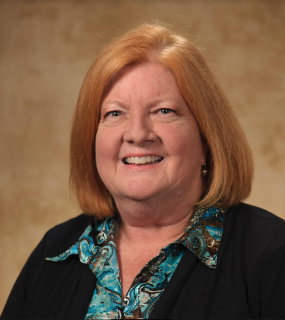
Be careful, and watch yourselves closely so that you do not forget the things your eyes have seen or let them fade from your heart as long as you live. Teach them to your children and to their children after them. (Deut. 4:9 NIV)
While barely mentioned in the New Testament, two Christian women, Lois and Eunice, were no doubt familiar with this scripture due to their Jewish heritage. It is evident that they practiced this teaching because we read of the influence they had on their grandson/son, Timothy, one of the most impactful missionary preachers in the early church. Here are the only two passages that mention these women:
I am reminded of your sincere faith, which first lived in your grandmother Lois and in your mother Eunice and, I am persuaded, now lives in you also. (2 Tim. 1:5)
Now Paul also came to Derbe and to Lystra. And a disciple was there, named Timothy, the son of a Jewish woman who was a believer, but his father was a Greek, and he was well spoken of by the brothers and sisters who were in Lystra and Iconium. (Acts 16:1)
If only we knew more about the specifics of how they raised Timothy. Did they give him time out when he misbehaved? Did he have a curfew? Did they make him go to church when he didn’t want to? We can be sure that, like us, they were not perfect as grandmother and mother. But we know that despite their imperfections they were successful in raising someone who chose to devote his life to Christ and His church, as we read in 1 Corinthians 4:17.
So, what can we learn from these women? We learn that the relationship between us and our children and grandchildren is incredibly impactful—even essential—to their spiritual upbringing. We also learn that even if our spouse is not a believer, we can still have a relationship that results in blessing these young souls. Acts 16:1-2 tells us that while his father was a Greek unbeliever, Timothy’s mother was still successful in teaching him about Christ.
It is universally agreed that the relationship between a mother and child is important. But there are also multiple verses and examples in the Bible that show us the importance of grandparents and the positive and negative results of this relationship. Whether we live near, or even with, our children or grandchildren, or clear across the country or the world, we are still called to maintain a relationship that will strengthen their relationship with the Lord. Author Mickey Elliott says, “It is the grandparent's responsibility to encourage, love, bring peace and unity. Never speak negatively about either parent to the grandchildren, but always encourage love, forgiveness, unselfishness, and understanding.”
How can we build and maintain these influential relationships?
- By example -living out our faith in words and actions.
But if a widow has children or grandchildren, let them first learn to show godliness to their own household.(1 Tim. 5:4 ESV)
Our children and grandchildren observe how we treat and serve others, how we react to life’s events, and whether or not we are striving to be like Jesus.
- By teaching -sharing God’s Word from day one at every little opportunity.
But as for you, continue in what you have learned and have become convinced of, because you know those from whom you learned it, and how from infancy you have known the Holy Scriptures. (2 Tim. 3:14-15 NIV)
Take advantage of “teachable moments,” sharing Biblical truths in everyday situations. This can be as simple as replacing, “What a beautiful day,” with “What a beautiful day God made for us,” as you look out the window together.
- By praying -unceasingly taking them before the throne of grace.
Do not be anxious about anything, but in every situation, by prayer and petition, with thanksgiving, present your requests to God.(Phil. 4:6-7)
Pray with and for them—their health, their choice of friends, their future spouses, and protection from the tempter.
An unknown writer has said, “Having [kids and] grandkids is a blessing. Helping to shape their lives is an honor,”andScripture supports this statement.I particularly like the Contemporary English Version’s rendition of Psalm 127:4-5, “Having a lot of children to take care of you in your old age is like a warrior with a lot of arrows. The more you have, the better off you will be.” And Proverbs 17:6 (NLT) tells us that “grandchildren are the crowning glory of the aged.”
May we all be mindful of the spiritual legacy we will leave our children and grandchildren.
-
Burdened Relationships
Written by Kat Bittner, volunteer and member of the Board of Iron Rose Sister Ministries in Colorado
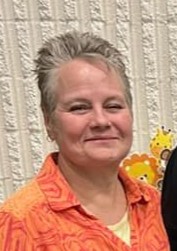
“Carry each other’s burdens, and in this way you will fulfill the law of Christ” (Gal. 6:2 NIV).
“A true relationship is two imperfect people refusing to give up on each other” (Unknown). That could not be a more fitting description for us as humans in relationship with each other. Relationships are often hard. They take a great deal of commitment and effort on our part to be even the least bit fulfilling. Our sinful nature, clothed in selfish desire, often keeps us from working on relationships as we should. But like anything else in life that is good, we need to ensure that God is at the forefront of our relationships and that He is the reason we do what we do. “Whatever you do, work at it with all your heart, as working for the Lord, not for men”
(Col. 3:23).
God designed relationship, and He designed it to be a reciprocal effort; each person brings something to the relationship that is equally satisfying. Consequently, the best relationships are enveloped in a common love (1 Cor. 13:4-7). The best relationships build us up rather than tear us down (1 Thes. 5:11). The best relationships are burdened relationships.
Burdened relationships are those that involve mutual dependence on each other. We should be dependent on others (most assuredly our sisters in Christ) for several things. We need each other for guidance as “the heartfelt counsel of a friend is as sweet as perfume and incense,” and “as iron sharpens iron, so a friend sharpens a friend” (Prov. 27:9,17 NLT). We need each other for spiritual restoration for “…sisters, if another believer is overcome by some sin, you who are godly should gently and humbly help that person back onto the right path (Gal. 6:1). We need each other forinstruction on how to live as godly women (Titus 2:3-5).
Perhaps the most important thing we can do for each other as sisters in Christ is to share those things which encumber or afflict us. Sin and the struggles of life can weigh us down with extreme heavyheartedness. The burdensome stuff of life can discourage and weaken our spiritual state. We should never be embarrassed or ashamed to share those things which weigh heavily on our hearts. The adage “there is strength in numbers” is very true, especially when it concerns our spiritual health. The author of Ecclesiastes proclaims that “two are better than one because they have a good reward for their labor…and a threefold cord is not quickly broken” (Eccl. 4:9,12 ASV).
We cannot do life in any capable fashion without strong relationships. We must be willing to share our burdens with our sisters in Christ. In doing so, we afford them the powerful healing that comes from prayer, thereby encouraging them on to a better, stronger faith. “Pray for each other so that you may be healed. The earnest prayer of a righteous person has great power and produces wonderful results” (James 5:16, NLT).
Our burdens need to be shouldered by each other so faith can reach its crowning achievement.Faith is made stronger when our relationships with each other better mimic our relationship with God. When our relationships with each other are more authentic, transparent, and persevering, we can better cope with the heaviness that life brings us and others. Shouldering our burdens with one another is a key element for building good relationships because it also demonstrates selflessness. And we truly live by the tenets of Jesus’ teaching when we humble ourselves enough to selflessly carry the burdens of others (Phil. 2:3, Rom. 13:8; Gal. 5:13; 2 Jn. 1:6). Even more wonderful is that we can have our burdens shouldered by Jesus, too. In fact, He expects it of us. He whose burden is light asks us to burden Himself with our heaviness.“Come to me, all you who are weary and burdened….my yoke is easy, and my burden is light” (Matt. 11:28,30 NIV).
Sisters, we cannot afford to be stagnant or self-righteous in our relationships. Good relationships require effort and perseverance. We must be committed to working selflessly in our relationships if we are to be pleasing to God. Relationships can fuel our faith because they require a refusal to give up on each other just as God refuses to give up on us. God has “chosen you and will not throw you away”(Is. 41:9 NLT). A burdened relationship demonstrates a faithful work. It is a good thing! How will you be burdened by your relationships?
-
Chance Encounters
 Written by Liliana Henriquez, volunteer with Iron Rose Sister Ministries in Colombia
Written by Liliana Henriquez, volunteer with Iron Rose Sister Ministries in ColombiaIt is curious to see how God can use ANY person to bless us and fulfill His will. Furthermore, I believe that God delights in exposing all of His creativity in putting together all the pieces of the puzzle of our lives. He encourages encounters, delays encounters, prevents falls, and allows falls… in short, like any artist, He is inspired and makes sure that the masterpiece is unique and special. God delights in the process; He is not in a hurry.
Almost 5 years ago, when my family and I had just moved from Venezuela to Colombia, God put several key people in our path who, despite the fact that they did not profess our same faith, or at least not in the same way, were that Rahab who protected us and "saved" our lives, so to speak. Those people cared for us; they gave us essential things like mattresses, kitchen utensils, sheets, coats, food, among other things to start our new life in Colombia.
When reading the story of Rahab, the first question that comes to mind is this: Why would the spies enter into the house of a prostitute? I mean, the house of someone who apparently did not have the same faith they had.
Would it have been an explicit command of God? Or was it just a coincidence?
I do not know. Maybe the spies didn't know whose house they were hiding in, but I'm sure God did.This is one of those chance encounters that God allows for His great purpose to happen. The spies found in Rahab a woman who knew Jehovah and Rahab found in the spies a confirmation of the God she had already been hearing about. This meeting allowed Him to affirm: “…The Lord your God is God in heaven above and on the earth below” (Josh. 2:11b NIV).
I wonder, what would have happened to the lives of the spies if they had not found Rahab. Perhaps the king would have caught them.
What would have become of Rahab's spiritual life had she not met the spies? Perhaps she would not have had a chance to be redeemed.
What would have happened to me and my family if we had not found those special people who helped us in our beginnings as immigrants? Perhaps it would have cost us much more to make a life in this country.
Let's not underestimate the chance encounters we have throughout our lives; we don't know if they are an angel sent by God to bless us.
Dear sister, today I want you to remember that our lives are a beautiful symphony of God, composed of different rhythms and melodies that avoid monotony and boredom; and encourage dependence and devotion to God. Let's fully enjoy this experience called LIFE, with all the kinds of encounters it can bring.
#IronRoseSister #HIStories #redeemed #chanceencounters #angelunawares #Godsprovision #guestwriter #blog
-
Christ is Our Head
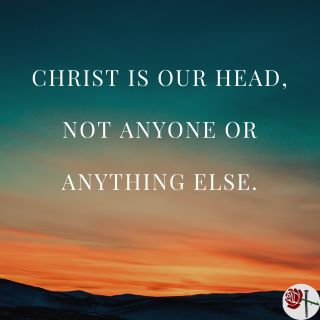 Written by Kara Benson, volunteer with Iron Rose Sister Ministries in Little Rock, AR
Written by Kara Benson, volunteer with Iron Rose Sister Ministries in Little Rock, AR“He is the image of the invisible God, the firstborn over all creation. For by him all things were created; things in heaven and on earth, visible and invisible, whether thrones or powers or rulers or authorities; all things were created by him and for him. He is before all things, and in him all things hold together. And he is the head of the body, the church; he is the beginning and the firstborn from among the dead, so that in everything he might have the supremacy.” (Col. 1:15-18)
Wow! If you skimmed or skipped the first paragraph, I encourage you to go back and reread it. These are meditation-worthy verses proclaiming the power and preeminence of Christ! From time to time, I need to be reminded that Christ is our head.
Christ is our head, not people. Often, we are guilty of putting people on a pedestal. They are inspiring teachers, great examples, and we naturally look up to them. However, esteeming someone too highly can be destructive to our faith if they fall. What happens when your beloved preacher, wonderful worship leader, or esteemed elder falls away? Would you feel lost without him and begin to question your own convictions? Or would your faith in Christ remain vibrant?
Jesus is our high priest; no one else can stand between us and God (Heb. 4:14-15). First Timothy 2:5 says, “For there is one God and one mediator between God and men, the man Christ Jesus.” We should not let the opinions and decisions of others affect our relationship with God. If we trust in mankind, then we will be repeatedly disappointed. But “blessed is the man who trusts in the Lord, whose confidence is in Him” (Jer. 17:7). People will inevitably let us down, but God will remain a strong tower for the righteous.
Christ is our head, not culture. Let me be the first to say that culture is beautiful. Learning about the customs, foods, holidays, music, and languages of the world is fascinating to me. I fell in love with the Spanish language and studied it in school for nine years. Revelation 7 describes my favorite scene in the Bible: people from every nation, tribe, and language standing before the throne, robed in white, and worshipping our God. I am so excited to see that day!
We can certainly celebrate our culture and be proud of our heritage. But every culture is flawed because it is cultivated by flawed, broken people. There are parts of every culture that are sinful and need to be redeemed. In Romans 10:2-3, Paul writes that the people sought to establish their own righteousness instead of having their righteousness based on God. Cultures will vary and shift throughout the years, changing with each new generation. However, Jesus Christ is the same yesterday, today and forever (Heb. 13:8). Paul was willing to lay aside his cultural background when necessary for a higher calling, specifically winning the lost (1 Cor. 9:19-23). Following Jesus and His Word takes precedence over everything. Our allegiance is to Christ and the kingdom of God before any earthly kingdom, nation, or culture.
Christ is our head, not my emotions. Anxiety, anger, bitterness, loneliness, romantic passions, pride... if I am not careful, my emotions can run the show and run away with me. They may cause me to reinterpret scripture to fit what I want or justify poor choices. I may strongly feel a certain way, but the heart is deceptive above all else (Jer. 17:9). Emotions cloud our vision, which is why we must take every thought captive and make it obedient to Christ (2 Cor. 10:5).
The body only moves where it is directed by the head. When a part of our body does not obey our mind, often there is pain and dysfunction. Likewise, when we follow people, culture, or emotions, there will be disunity and conflict in the body of Christ. Let us remember that Christ is our head. As Christians, we take our direction and priorities from Him and His Word.
His love and mercy, His sacrifice and self-denial, His obedience and desire to please the Father are our example. Christ has lordship over the church and over our lives. And His authority is good and glorious because He is our Savior who bought us back with His precious blood! Joyfully, we submit to Him!
“[God] has spoken to us by his Son, whom he appointed heir of all things, and through whom he made the universe. The Son is the radiance of God’s glory and the exact representation of his being, sustaining all things by his powerful word. After he had provided purification for sins, he sat down at the right hand of the Majesty in heaven. So he became as much superior to the angels as the name he has inherited is superior to theirs.” (Heb. 1:2b-4)
-
Christ, the head, loves the church
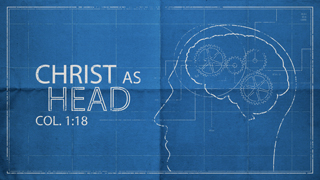
Ephesians 5:21-33 has often been a controversial text among women. Discussions about women’s role and reactions to the word “submission” overshadow one of the most beautiful facets of the text, which we will spend a moment highlighting.
What we are talking about is Christ and the church.
Please read the text below paying special attention to the references to Christ and the church (bolded for emphasis).
21 submitting to one another out of reverence for Christ. 22 Wives, submit to your own husbands, as to the Lord. 23 For the husband is the head of the wife even as
Christ is the head of the church, his body, and is himself its Savior. 24 Now as the church submits to Christ,
so also wives should submit in everything to their husbands.
25 Husbands, love your wives, as
Christ loved the church and gave himself up for her, 26 that he might sanctify her, having cleansed her by the washing of water with the word,27 so that he might present the church to himself in splendor, without spot or wrinkle or any such thing, that she might be holy and without blemish.
28 In the same way husbands should love their wives as their own bodies. He who loves his wife loves himself.
29 For no one ever hated his own flesh, but nourishes and cherishes it, just as Christ does the church,30 because we are members of his body.
31 “Therefore a man shall leave his father and mother and hold fast to his wife, and the two shall become one flesh.”
32 This mystery is profound, and I am saying that it refers to Christ and the church.
33 However, let each one of you love his wife as himself, and let the wife see that she respects her husband.Now, go back and read only the bolded sections.
Christ loves the church! He demonstrated this love by giving himself up for her. That kind of sacrificial love inspires respect and trust.
When we are hesitant to submit to the head, to Christ—to His teaching and to His Word—it is often because we have lost sight of the depth of love He has for us. He wants us to “be holy, without blemish.” He truly wants what’s best for us.
Do you trust that Christ wants what is best for you personally and for His church?
He “nourishes and cherishes” us. We are members of His body and He would never want to do things that cause us, and thereby Himself, harm, but rather what ultimately builds us up. Christ loves us, protects us, and saves us, even from ourselves.
Submitting to the head, that is Christ, who loves, protects, honors, and cares for us, becomes easier when we remember the depth of love demonstrated by Who He is and what He has done. It feels less like a chore of submission, but rather like the wisdom of allowing the head to make the decision instead of the foot trying to decide what the hand should do.
Christ is the head of the church and of each of us individually. As members of His body, may we remember to always seek Him as the head and submit to His will, rather than striving to enforce our own.
-
Commitment, Trust, and Vulnerability
Written by Nilaurys Garcia, volunteer with Iron Rose Sister Ministries in Canada

I am blessed to say that I have true friends, even if these are not many. Friends that I can share my joys with, problems, and that, above all, they will hold me accountable if at any time I committed to do something and I did not fulfill it. Maybe you're thinking you don't like those friendships but let me explain a little more. I’m talking about those people who are in my inner circle and to whom I have given the right and they have accepted the obligation to help me follow a better path. Those I can be vulnerable with and recount my struggles with, mostly when I need that reminder of who I am and why I should do or not do something.
A word that creates mixed feelings in me is "vulnerability." I would prefer to think that I am strong, and it is easier to keep the mask on that says I-can-deal-with-everything-that-life-throws-at-me. You are probably laughing with me at this moment when you remember all the times that we have fallen, just for thinking like that. If we are honest with ourselves, we can admit that we do not like to be vulnerable, delegate control, or much less be held accountable for our own words. I like to remember Hebrews 10:24 that says, "Let us consider how we may spur one another on toward love and good deeds.” (NIV)
And one of the reasons I don't like to be vulnerable is because it's easier to get hurt. That's why I can’t be vulnerable with everybody, but only with those who I know won't take advantage of me and won't hurt me. Now, who better to be vulnerable with than God and leave Him all our burdens, as we are invited to do in 1 Peter 5:7. “Cast all anxieties on Him because He cares for you."
Would we be able to leave our burdens, fears and worries to a complete stranger? I don’t think I could do it. It's too risky and I would feel too vulnerable to do it. The good news is that we don't have to depend on or trust a complete stranger. We have a Heavenly Father who only wants our good, would never hurt us, and gave us wonderful blessings as a gift for our lives. In addition, we can have people close to us that we trust and commit to helping each other become better. Yes, it is a commitment. There may not be a ring or a friendship bracelet, but there is the willingness and commitment by each one to make that relationship flourish.
If we want to develop our relationship with God and our inner circles, we need to start by knowing them more, by trusting them and, you guessed it, committing ourselves to being vulnerable with them. In my experience, when my relationship with God is firm, I also can be better with my close people and if I am failing at something, I am convinced that they will help me get back on the right path, even without being asked to do so at the moment. Every time my human nature tries to do what it wants instead of what it was called to do, David’s statement in Psalm 31, verse 14 comes to mind, “But I, Lord, trust in You and say, ‘You are my God.’
Personally, it is a contract or commitment with God, because it is a relationship that began by paying the highest price that could have been paid, the life of Christ crucified on a cross. I would like to invite you to develop a commitment to God based on vulnerability, because that will then lead you to develop an intimate circle that gives you the support, joys, correction, and everything you need to get closer to God. Remember that we are not alone and are immensely loved, but… yes, there is a “but,” we must be willing to trust if we really want it to work out.
-
Complicated Relationships
Written by Aileen Bonilla, volunteer with Iron Rose Sister Ministries in Ecuador

Who has not been involved in a complicated relationship? I would dare to say we all have. Jesus was also in middle of these confusing relationships, obviously not because He caused any conflict, but rather because He lived in this fallen world. The reality is that relationships are not complicated, we are the complicated ones.
Different than us, Jesus had and has all authority to reproach those who have a conflictive heart. Those heart problems will be reflected whenever they open their mouths. He manifested in Matthew 12:34,
“For the mouth speaks what the heart is full of.”
The context of this quote is when Jesus cast out a demon from the body of a man who was blind and mute. The Pharisees were always attentive to everything Jesus did in order to accuse Him. They desired, with their whole heart, that Jesus die. This passage is one of the many scenes where the gospels reveal how difficult it was for Jesus to fulfill His ministry here in this world, where everyone was contaminated by evil.
We shouldn’t be surprised that, at some point, we will find ourselves in the middle of complicated relationships. We should have wise discernment to realize if we are the stumbling block. Just as the Pharisees were trying to tempt Jesus, we will be tempted. And ever since the fall in the garden of Eden, humans have been incapable of relating with others in the right way. We all have different temperaments. But what should be clear is that as Christians, and in spite of those internal conflicts, we do not have the right to treat others badly.
I remember when I studied gastronomy together with my husband, we met a girl that had kitchen experience. For her, everything we did was wrong. Every time the instructors taught something new, she considered it irrelevant. Also, when she made a mistake, she was incapable of recognizing her error. No one wanted to be near her, since she yelled and made fun of everyone in the group. Those same attitudes in Christians are weighed down by the “old self” (versus the new creation). And that is why we shouldn’t be surprised when there are difficult people in our congregations.
Proverbs speaks a lot about not aligning ourselves with people who are haughty, arrogant, angry, wise in their own eyes. The reason is because we will become like them. These people typically do not want to be helped. Since they’re already wise in their own eyes, they are hindering the work of God’s Spirit. In spite of being in the midst of these complicated people, Jesus remained blameless, and His Word says that He left us good works, good examples that we should follow (Eph. 2:10).
The Pharisees constantly attacked Jesus; they couldn’t stand that there was another Teacher better than them, because He taught by example. They were jealous of the Son of God, and this is a grave sentiment that destroys everything in its path.
The envious person wants everything at any cost, invalidating the other person. The jealous person is in constant competition with others. For this reason, many times, our workplace carries such weight, because there are those who are scheming for ill and pulling others into the situation. Even though we can’t always escape from an environment like this, neither should we be contaminated by it.
Also, there will be complicated relationships amongst our loved ones, be that children, brothers, sisters, parents, spouse, etc. At any moment, the rope tightens, but to reach that limit, it is because we have let the emotions pass. The emotions are capable of creating an entire theory because we first feel and then think (Goleman, 336). Nevertheless, we are called to be reconcilers to reflect God in our homes and wherever we go.
At one point in my life, I, too, was a complicated person, because many people had constantly hurt me and I decided back then to close my heart to friendships, to Christian brothers and sisters, and to anyone. I didn’t want to go out; I even suffered from depression. But God, in His infinite wisdom, showed me that in spite of the past hurt, I had to make the effort to leave that state of being. Today, I am much more open to expressing my emotions and letting things flow, always with caution, but by trying to help those who need it. When someone treats me badly, yells at me, offends me, and uses guilt to make me responsible for their emotions, I silently go to the Father, in complete silence, without even shedding a tear. And the Father speaks to me, “Be still, I AM God.”
-
David: His Prayers in Psalms and Communication with God
Written by Deanna Brooks, volunteer with Iron Rose Sister Ministries in Arkansas

When we think of David, we often think of the shepherd boy… the youngest in the family… who killed Goliath, spent years running from Saul’s anger, became king, took another man’s wife, and had him killed in battle.
There is more to David than those events. There is his heart—a heart devoted to God in constant communication.
Samuel told King Saul in 1 Samuel 13:14 (ESV), “The Lord has sought out a man after his own heart.” This was said when David was still a shepherd, before he slew Goliath. God saw David’s heart.
In 1 Chronicles 17:16, we see David’s HUMILITY. Nathan told David he couldn’t build the temple, but the Lordwas building a house for him: a dynasty of kings. “Who am I, O LORD God, and what is my house, that you have brought me this far?“
In Psalm 73, we find a description of David’s relationship with the Father and why Samuel described him as a man after God’s own heart. Additional passages show David’s constant communication with God in various situations:
LOVE and TRUST:
Psalm 18:1, “I love you, O LORD, my strength.”
Psalm 37:3, “Trust in the Lord and do good.”
RECOGNITION for WHO GOD IS:
Psalm 9:1, “I will give thanks to the Lord with my whole heart; I will recount all of your wonderful deeds.”
Psalm 19:1, “The heavens declare the glory of God, and the sky above proclaims his handiwork.”The rest of this Psalm continues to proclaim the majesty of God.
Psalm 40 is a prayer of THANKSGIVING for deliverance:
“I have not hidden your deliverance within my heart, I have spoken of your faithfulness and your salvation” (vs. 10).
OVERWHELMED by betrayal:
In Psalm 55, David pours out his heart because of the rebellion of his son Absolom. Ahithophel, one of his thirty mighty men and a trusted advisor, sided with Absolom.
He redeems my soul in safety from the battle that I wage, for many are arrayed against me. God will give ear and humble them… My companion stretched out his hand against his friends; he violated his covenant. His speech was smooth as butter, yet war was in his heart; his words were softer than oil, yet they were drawn swords… But I will trust in you. (55:18-23)
PROTECTION when fleeing from Absalom:
Psalm 3:3, “But you, O LORD, are a shield about me, my glory, and the lifter of my head.”
REFUGE:
God is our refuge and strength, a very present help in trouble. Therefore we will not fear though the earth gives way, though the mountains be moved into the heart of the sea…The Lord of hosts is with us; the God of Jacob is our fortress. (Ps. 46:1-2,7)
THANKSGIVING for God’s MERCY:
Psalm 103:8, “The Lord is merciful and gracious, slow to anger and abounding in steadfast love.”
WORSHIP and PRAISE:
Psalm 106:1-2, “Praise the Lord! Oh, give thanks to the Lord, for he is good, for his steadfast love endures forever! Who can utter the mighty deeds of the Lord, or declare all his praise?”
Heartfelt words of REPENTANCE after his sin with Bathsheba and murder of Uriah:
Have mercy on me, O God, according to your steadfast love; according to your abundant mercy blot out my transgressions. Wash me thoroughly from my iniquity, and cleanse me from my sin! … Restore to me the joy of your salvation.(Ps. 51:1-2, 12)
THANKS for ANSWERED PRAYER:
Psalm 116:1, “I love the Lord, because he has heard my voice and my pleas for mercy.”
Psalm 119 is a prayer of GRATITUDE for God’s Word: “Blessed are those whose way is blameless, who walk in the law of the Lord!(vs. 1) Then in verse 11, David gives one of the keys to knowing and doing God’s will, “I have stored up your word in my heart, that I might not sin against you.”
Being TRANSPARENT:
Psalm 139 closes with, “Search me, O God, and know my heart! Try me and know my thoughts! And see if there be any grievous way in me, and lead me in the way everlasting!” (vs. 23-24)
David allowed his life to be an “open book” before the Lord.
The Psalms show how David walked with God in all stages of life. He turns to God as we often do to a close friend who knows all our joys, hurts, and secrets, and that open communication molds David into a man after God’s own heart.
The prophet Jeremiah wrote, “You will seek me and find me, when you seek me with all your heart” (29:13). David’s life is one of seeking relationship with God through constant communication in complete faith and trust. Are you developing your relationship with the Father through regular communication?
-
Even Jesus Got Battle-Weary
 Weary. Tired. Beaten down. But never alone.
Weary. Tired. Beaten down. But never alone.Through the video series “Victorious and Joyful in Battle,” we acknowledged that everyone is facing a battle in their lives. Our battles may look different, but the struggles are the same. And in the midst of the battle, we get weary and forgetful. The struggles consume us because we are in survival mode and can lose sight of what we are fighting for.
The hope of victory may feel like a distant, even nonexistent reality. However, we can wait in hope and eager expectation of the victory we have in Christ!
This past weekend, we celebrated the victory of the resurrection—the ultimate victory over death. And if we have been united with Christ in His death and His burial, we are promised the victory of the resurrection (Rom. 6:1-4)!
Yet Jesus, in His humanity, even though He knew with absolute certainty the promise of the resurrection, He and His disciples became weary in the battle.
We do not have to feel guilty for feeling weary! And when we do feel beaten down and exhausted, Jesus reminds us of three keys during the weary stage of the battle, as we eagerly anticipate the victory of the resurrection.
Jesus’ example shows us that
1. It’s okay to admit our weariness. “Then he said to them, “My soul is overwhelmed with sorrow to the point of death... The spirit is willing, but the flesh is weak” (Matt. 26:38a, 41b).
2. It’s okay to ask for help. “...and he said to them, “Sit here while I go over there and pray.” He took Peter and the two sons of Zebedee along with him... Stay here and keep watch with me” (Matt. 26:36-38).
3. Prayer is vital for keeping our perspective. “So he left them and went away once more and prayed the third time, saying the same thing” (Matt. 26:44).I rejoice with you in the hope of the resurrection and the victory we share through Him.
-
Free in Christ
Written by Johanna Zabala, volunteer with Iron Rose Sister Ministries in Ecuador

Based on my life experience, I often think about the fact that each child is a product of the relationships, education, and environment that were influenced by the adults with whom they grew up.
Beloved sisters, each of us has gone through the childhood phase when we were able to grow and move forward. I consider those first years of life to be of great importance in developing the various interpersonal relationships we find and develop later in each subsequent cycle of life. These relationships become the foundation for the young person or adult that we are today.
When I look back on the age of childhood, many memories come to mind. However, there are other events that I cannot remember, likely because those moments were not significant in my early life. No doubt, my learning process as a child was different from yours; but for each of us, learning will continue as we acquire additional information and attitudes that we can put into practice as time goes by.
I learned everything from my environment: walking, talking, and responding to my surroundings, fundamentally influenced by my maternal grandmother who demonstrated a wide variety of teaching patterns.
As a result of growing up in a dysfunctional family, I experienced significant consequences for not knowing how to control my natural fears. Fear was one of the first emotions that caused me a lot of insecurity, emotional blockage, and mistrust in communications within my environment. This is what I continue to struggle with: letting the Holy Spirit heal my fears so they don't become obstacles to doing what I need to do or passing them on to the ones I love.
But despite my challenging childhood, the negative impact of absentee parents, an inflexible upbringing, and a lack of attention to my need for communication, I grew up. Today, through understanding, forgiving, and breaking away from past situations of great uncertainty which have threatened to wreak havoc on my present relationship with Christ, I can strengthen my conviction, having been rescued from the destructive influence of my earthly parents. This aligns with what I have read and reflected on in 1 Peter 1:18. To become a person approved by the Heavenly Father, I have decided to live my new life in Christ, as described in 2 Corinthians 5:17 (NIV), “Therefore, if anyone is in Christ, the new creation has come: The old has gone, the new is here!”
Every day, comforted by the quotation above and in my relationship with the Lord Jesus, I feel the need to continue to learn to be free from what damages the soul, mind, heart, and faith in God. We must not forget that we are free and that there will always be freedom in Jesus Christ, as stated in the letter to the Galatians, chapter 5 verse 1, which reminds us again that "It is for freedom that Christ has set us free. Stand firm, then, and do not let yourselves be burdened again by a yoke of slavery.”
When we are aware that in the old life before knowing Christ, there were moments of destruction of what was good and pure, which came from God, we can strengthen ourselves and experience the freedom to be and act according to God's heart, which is a great blessing.
To be free is to not repeat the sin that separates us from the presence of God. It is knowing how to choose between good and evil and being called to freedom to serve one another out of love. Being free, we are separated from evil, not allowing the slavery of sin or guilt to lead us to do the opposite of the will of our sovereign God.
To be free is to be filled with the Holy Spirit, whom we receive in our new birth in the waters of baptism (Acts 2:38). He frees us from fear and assures us that God is with us until the end of the world and that He redeems us for eternal salvation.
There are many blessings from God's freedom in the Christian life; it is a privilege of the immense love of our Creator, who knows us and always covers us with eternal love (see Jeremiah 31:3).
To conclude, I encourage you to remember what was admirable from your childhood and to always cultivate innocence, humility, forgiveness, and a smile, so you can become like children in order to enter the kingdom of heaven, fulfilling what is mentioned in Matthew 19:14.
-
God is Faithful to His Promises
 Written by Marbella Parra, volunteer with Iron Rose Sister Ministries in Honduras
Written by Marbella Parra, volunteer with Iron Rose Sister Ministries in HondurasIn the course of our lives, we find many promises that lead us to put our trust in someone, based on something happening in the future. There are promises we make to other people, and promises that have been made to us. Some have been fulfilled and others, on the contrary, have been forgotten. For this reason, we decide if we can trust someone or not since, after someone hasn’t fulfilled their promise, we are more careful with that person the next time.
We can surely think of many different opportunities in which we hoped in something that never happened and moments in which we felt let down because they have failed us. However, I am sure that we have also had many moments in which a promise has confirmed that we are with the right person and, at the same time, our confidence in that person grows.
If we had the opportunity to put our full trust in someone that will never fail us, that ideal person is definitely God. There is no doubt that He is the greatest example we have of faithfulness to His word. From the creation of the world, He has fulfilled all the promises He has made. The history of God’s people allows us to realize the plan that He has for the salvation of the world and the blessings for His people. In middle of that whole story, we can note the special love that God shows for humanity and how everything He does is in fulfilment of the promise that one day humans will be able to enjoy a better world—a perfect world together with Him for eternity. To that end, He promised to send a Savior, His Son Jesus Crist. This promise can be seen from the Old Testament and we can also see how each word was fulfilled in the New Testament, a promise so great that it reaches all the nations of the Earth.
In the gospel of Matthew, one can see how God’s plan was realized, shown through the genealogy of Jesus and the important role each person had, at their time, and how each one was used by God to fulfill His word. In chapter 1, it is highlighted in this way,
“All this took place to fulfill what the Lord had said through the prophet: “The virgin will conceive and give birth to a son, and they will call him Immanuel” (which means “God with us”)” (Matt. 1:22-23).
These words remind us that the Lord has always been present and has shown His love for humanity. Through the incarnation of Christ, one of His most important promises was fulfilled. Even more interesting is that this promise is confirmed again at the end of Matthew. In Matthew 28:20, it says,
“…and teaching them to obey everything I have commanded you. And surely, I am with you always, to the very end of the age.”
Twice it is stated that He is with us, and we already know that the word of God is trustworthy. We can be certain that everything that God has prepared and has promised previously will be fulfilled.
Now, the question we must ask ourselves is, are we willing to trust in Him unconditionally? If He is the one who has shown, since the beginning of the world, that He wants what is best for us, that He wants to grant us salvation, and that He wants us to be with Him for eternity, are we willing to be faithful to Him no matter what our circumstances? He does not promise us a rosy, easy life in this world. So, without considering the disillusions that we have faced, or that we will have to face while we are on this earth, are we clinging to Him, trusting that He has better things prepared for us?
It doesn’t matter how many people have failed their promises, we have complete confidence that we have a God who never lies and has made us beautiful promises.We need to not allow difficult things in life to cause us to forget what is waiting for us in eternal life. Rather, we should remember that the Lord is with us, guiding our steps, lifting us up when needed and taking our hand to lead us forward.
He is giving us unconditional love every day. If we continue to be faithful, trusting that everything we believe has not been in vain, and that an incorruptible crown is waiting for us in the presence of our Lord. In the same way that God fulfills His promises, we also should be faithful to the commitment we have made to our heavenly Father until the end of our days.
And you, do you trust in the Lord’s promises?
Page 1 of 3

